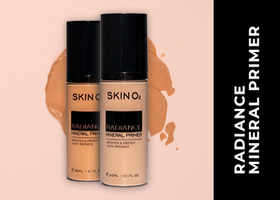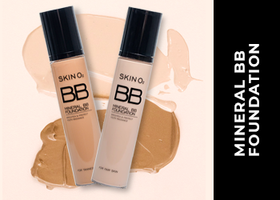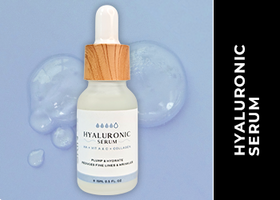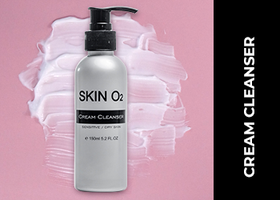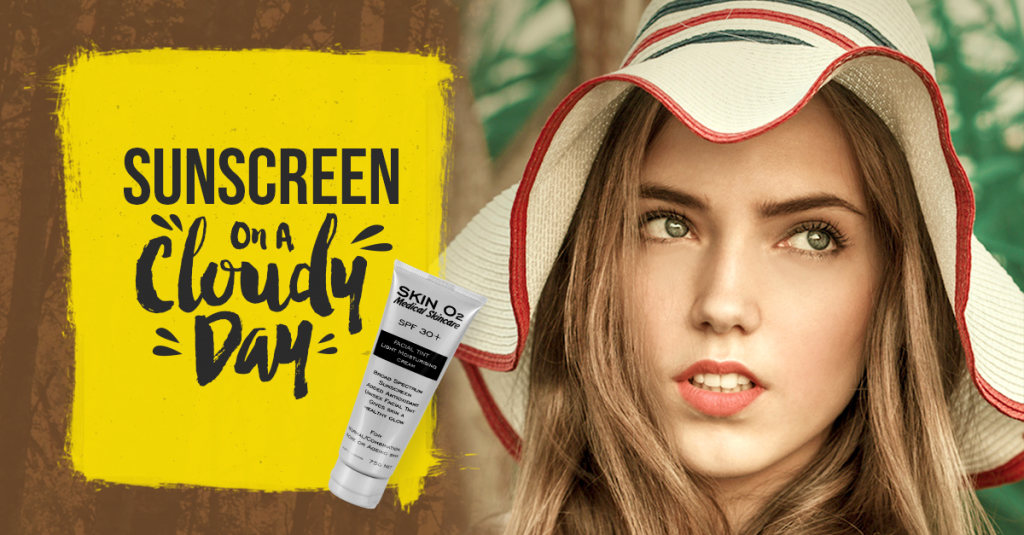
Sunscreen On A Cloudy Day
It’s advice that every Skinlover has heard since they were kids: if you’re going to the beach, wear sunscreen! And why not? It makes sense: it helps you prevent skin cancer, the harmful exposure to direct sunlight on the beach, or just the sun raining on your parade in general. But did you know that sunshine isn’t the only reason you should wear sunscreen?
That’s right – sometimes clouds aren’t enough to guard you from the sun’s harmful effects. Here are 4 sun myths that a lot of us still believe – and how they’ve been debunked.
It’s what you can’t see
Contrary to popular belief, it isn’t actually the sun’s heat or the light that can cause skin cancer – it’s UV rays, an invisible radiation that passes through our atmosphere and onto the surface. And it’s not limited by visibility either – if you’re out in the open, the radiation can get to you. That’s why it’s important on hot days with no clouds to stay indoors or under shelter as much as possible. And even if there are clouds…
Clouds can actually enhance effects of UV radiation
Clouds are your best friend if you want the sun out of your eyes – but for your skin, not so much. While you may think that clouds can hide the harmful UV radiation, around 80% of it manages to actually slip past cloud cover and hit our skin. Clouds can even “bounce” off this UV radiation from their edges, intensifying their effects – meaning that partially cloudy days might mean more amounts of UV radiation. That’s why you should still use sunscreen on cloudy days.
White shirts and snow
Yet another widely-believed myth about sun damage to the skin is that it only occurs in temperate or hot climates near the equator or the beach. UV radiation can actually bounce off snow and increase its exposure, and the higher altitudes mean even more UV exposure. So next time you’re thinking of going skiing, get yourself some sunscreen. Good news for those who like white shirts though: they reflect UV rays up to a point (but quickly lose their effectiveness once it gets soaked).
Sun and glass
One final note is that glass doesn’t stop UV radiation either – it only stops UVB radiation, not UVA. Windows that aren’t tinted can still let radiation through – which would explain why some people have freckles on the side of their body that’s exposed to the window when driving. To counter this, either put on sunscreen for long drives over open terrain or buy a car with tinted windows.
So there you go! Sometimes while the sun can help us glow, it can do quite a number on our skin even when you think it won’t. So the next time that you’re out and you may think that the clouds, white shirts or windows can help your skin still look fresh and fabulous, break out that little bottle of sunscreen. Use it all the time, basically, whether it’s sunny, snowy, cloudy, or even just a regular day. Your skin will thank you, we promise.
For more products that can help you get started on your skincare journey today, check this page.


